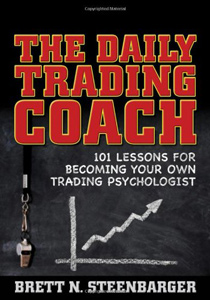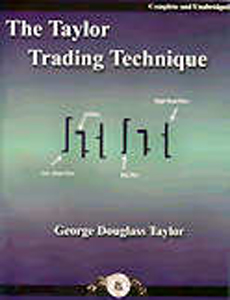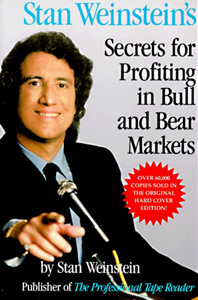Jérôme Kerviel Rogue Trader Scandal

Further Reading
Jérôme Kerviel , the 31 year old French rogue trader employed by France's second largest bank, Société Générale (SocGen) has been charged for "breach of trust'', "falsifying and using falsified documents'' and "breaching IT controls access codes''. News of the biggest ever financial fraud in history broke last Thursday on the 24th of January 2008. The rogue trader defrauded the bank of €4.82 billion (AUD$8.2 billion, US$7.09 billion) - the largest trading fraud by a single person. Kerviel took an US$83 billion losing bet on European share prices. Kerviel had been carrying out what SocGen called "vanilla futures hedging" on European equity markets and that the trader initiated "massive fraudulent directional positions in 2007 and 2008 beyond his limited authority". The trader had bought futures in three European indices - the Eurostoxx, the DAX in Frankfurt and the FTSE in London - effectively betting on the future direction of the stock market.
Jérôme Kerviel: The Trading Scandal
Societe Generale chairman Daniel Bouton said the trader had been betting throughout 2007 that markets would fall. "He was therefore winning, virtually," he said. But the bank says he had overstepped his authority and was wagering more money than he should have. So at the beginning of January, Bouton said, the trader voluntarily created losing positions, to neutralise his earlier gains and cover his tracks. But markets dropped this month, and fast. "This sad affair veered into a Greek tragedy: His virtual losing position became huge," Bouton was quoted as saying. The bank's systems discovered an anomaly on January 18, he said. At midday that day, a Friday, the trader's positions were neutral, but by the end of the day's trading the positions were losing 1.8 billion euros ($A3.02 billion), Bouton said. On Sunday, the full scale of the problem was revealed to the bank's management - "enormous and totally abnormal", Bouton said. "I decided ... to close the positions and alert the supervisory authorities," he said.
He took some risks but that's what he is paid for
Kerviel's job was arbitrage: the art of exploiting tiny and momentary discrepancies in prices of very similar stockmarket instruments. To make money, the bank has to wager big volumes but the risk is usually small because each transaction is balanced with an equal and opposite one. The bank says he created fictitious accounts to make it look as though his bets that shares would rise had been covered. The bank was open to the risk prices would fall - they did. Kerviel was able to get away with it partly because SocGen's risk systems do not check up on unregulated over-the-counter contracts straight away if no deposit is required, the bank said. Furthermore, the bank primarily looks at the net exposure to market prices rather than the total outstanding amount wagered. Bank risk experts say this approach is not peculiar to SocGen. To keep the checks at bay and continue trading, the dealer falsified documents and misappropriated passwords, SocGen said.
"He has not embezzled anyone, he hasn't taken a cent for himself and he was just doing his job as best he could," Christian Charriere-Bournazel, Kerviels lawyer, Elisabeth Meyer, said. "He took some risks but that's what he is paid for. The bank liquidated his positions in atrocious [market] conditions, so the bank is responsible for losing the €4.9 billion,"
Nicolas Rutsaert, an analyst covering European banks at Dexia SA in Brussels, said that at first the fraud "seemed like a joke". Societe Generale "was a leader in derivatives and was considered one of the best risk managers in the world", he told Bloomberg.
Ion-Marc Valhi of the Swiss bank Amas told the BBC: "I have a hard time buying the fact that a trader was able to set up a 'secret trade' of €4.9 billion without anybody finding out."
Confessions of a Rogue Trader: Motives
Questions of why the junior trader put his career and the bank at risk have arisen. "We don't know, we don't understand and it will be for the legal inquiry to find out," Jean-Pierre Mustier, head of Société Générale's corporate and investment banking division, "In our experience, frauds are usually done through very simple transactions."
Prosecutor Jean-Claude Marin has admitted that after two days of questioning Kerviel that, "he carried out a certain number of acts to conceal reckless positions on the markets", but did not try to profit personally from the financial deals. "He wanted to be seen as an exceptional trader, an astute market player,'' said Marin, adding that he was attracted by the prospect of a 300,000 euro ($503,778) bonus. "He went beyond what he was authorised to do on the market, it is true, but he wasn't trying to plunder the bank.'' Le Monde adds on Monday that Kerviel’s basic salary was only €50,000, while his bonus in 2006 amounted to only €60,000. Kerviel was only paid €100,000, including bonus in 2007. Societe Generale challenged Kerviel several times about risky operations, and each time he produced fictitious documents to justify himself. After examining preliminary evidence, prosecutor Jean-Claude Marin said Kerviel had admitted hiding his activities from superiors, and had said others also played fast and loose with bank rules. Marin revealed that Eurex, a derivatives exchange owned by Deutsche Boerse, had questioned Kerviel's trading positions in November, but that Kerviel had been able to sidestep questions from his employer. ''Eurex alerted Societe Generale in November 2007 about the positions taken by Jerome Kerviel. Questioned by the bank, he produced a fake document to justify the risk cover,'' Marin said.
Jérôme Kerviel: Nick Leeson or Tom Cruise?
Celebrity blogs have noted the resemblance of Kerviel to Hollywood actor Tom Cruise. Similarities with the historic rogue trader, Nick Leeson (of 1995 Baring Bank fame), have been revealed: According to the results of a forensic data search from Société Générale, Jérôme Kerviel had been trained by his employer to detect fraud and once promoted as a trader, used previously learned skills to work around the controls. Like Leeson, he doubled his bets to cover up for his bad trading decisions and waited for the market to turn in their favour. They were also both involved in arbitrage (the business of profiting from price differences between markets) of stock index futures and covering their tracks by mixing real and fraudulent deals with fictitious people.
Rogue Trader Consequences
There has been accusations that its move to unwind the trade distorted the market and might have inadvertently triggered a cut in US interest rates. Societe Generale chairman Daniel Bouton, offered to resign last week - the resignation was rejected. He has said his resignation remains on the table, however, suggesting he may feel he has to go if criticism worsens. President Nicolas Sarkozy warned there must be consequences for those responsible for the scandal: ""When there is an event of this nature, it cannot remain without consequences in terms of responsibility,'' Sarkozy said, "We are in a system where, when someone has a high remuneration, no doubt legitimate, when you have a big problem, you cannot shirk your responsibilities.''
Societe Generale shares down by nearly 50 per cent in the past six months - largely due to concerns over its exposure to the subprime crisis - the bank said it would be forced to raise €5.5 billion in new capital to restore its balance sheet. Bouton travelled to London to start drumming up support for a 5.5 billion euro ($9.2 billion) capital increase designed to compensate for the Kerviel losses and a separate 2.1 billion euro ($3.5 billion) writedown related to the global credit crisis.
The crisis will alarm markets by revealing the vulnerability of a huge bank to the deception of a single rogue trader. Banks put stringent checks in place on the activities of trading desks in order to prevent a repeat of the Barings fraud. Some analysts have questioned whether Societe Generale exacerbated the fall and indirectly led to the US Federal Reserve's subsequent decision to cut rates: a claim that was dumbed down by the chief executive. "It's absurd!" Bouton said of the suggestion, in an interview with Le Figaro daily. "Anyone could calculate our contribution to the market in recent days." Bouton was quoted as saying the bank, in closing the trader's unauthorised positions, respected market rules that forbid any player from intervening with sums worth more than 10 per cent of a given market. The bank says that is why it took three days to close the positions.
The French Bank lost 4.9 billion euros (AUD$8.23 billion) in closing down his deals. The bank has been forced into an emergency share issue to offset the losses. Societe Generale's shares have lost nearly half their value over the past six months and also posted another 2.05 billion euro sub-prime-related loss. A French lawyer acting for about 100 small shareholders said he had sued SocGen over the way it unbundled billions of dollars in share deals last week. The bank was also hit by two complaints about the sale of a million shares by a SocGen director on January 9-10. SocGen said director Robert Day had sold well before Kerviel was unmasked. Credit ratings agency, Moody's, has downgraded the French bank, saying there was evidence of serious breakdowns in the chain of operational controls.
Jérôme Kerviel vs. Société Générale: The Legal Case
On Tuesday, 29th January, Kerviel has been charged for: "breach of trust'', "falsifying and using falsified documents'' and "breaching IT controls access codes''. Investigating judges Renaud van Ryumbecke and Francoise Desset had rejected prosecutor Jean-Claude Marin's bid to charge Kerviel with the more serious crime of "attempted fraud'' and forgery. Kerviel is also formally prevented from communicating with Societe Generale employees -- or working in any financial services capacity pending the outcome of the case.
Kerviel could face a seven-year jail term and a 750,000 euro fine if found guilty of fraud. The case continues.
The Facts from Jérôme Kerviel Rogue Trader Scandal
- Jerome Kerviel, a rogue trader was employed by France's second largest bank, Société Générale
- The rogue trader defrauded the bank of €4.82 billion (AUD$8.2 billion, US$7.09 billion) - the largest trading fraud by a single person
- The trading scandal has been remarkably similar to the historic rogue trader, Nick Leeson of Barings Bank fame.
- The French rogue trader is charged with "breach of trust'', "falsifying and using falsified documents'' and "breaching IT controls access codes''
- How to Trade Forex and Gold Options
- How to Trade the Gold Price and Profit!
- Forex Trading the EUR/USD Pair € EURO and $ US Dollar
- How to Trade Stock Market Indices S&P500
- How to Trade Crude Oil
- Forex Trading Psychology
- What Are Broker Recommendations?
- Free Tickets to Trading & Investing Seminar & Expo ($18) Brisbane 2013
- Stock Calc App
- All About Warrants
- Introduction to Exchange Traded Funds
- Introduction to Exchange Traded Funds: Features
- Introduction to Exchange Traded Funds: Domestic ETFs
- Introduction to Exchange Traded Funds: International ETFs
- Exchange Traded Commodities
- Australian Stock Scan
- Australian Online Share Trading
- List of Trading Books
- Interesting Thoughts about the Australian Dollar
- What's the Meaning of Hawkish?
- Do You Know How To Use the P/E Ratio
- Trading, Religion and Politics - Do They Have Anything in Common?
- Shares that are Volatile that Double and Half in the Short Term
- Telstra (TLS) T3
- Margin Call by E-mail
- The Cost of Holding a Position
- Lack of Disclosure: Compensation from ASX Listed Company
- Unrealistic Returns and Benchmarks
- CMC Markets Down
- Quality versus Quantity Forex Trading
- Woolworths 1H Sales $30.7bn up 3.2%
Date added 31-01-2013 - ASIC Fines CommBank's CommSec
Date added 25-09-2012 - Industry Super Network Calls to Ban High Frequency Trading (HFT)
Date added 22-09-2012 - NAB Launches Online Share Trading Platform
Date added 19-09-2012 - Reserve Bank of Australia Says 23 Countries Holding AUD
Date added 18-09-2012 - Australia Post Digital Mailbox
Date added 10-09-2012 - Winners and Losers of Trading for Week 2
Date added 16-01-2012 - 2012's First Week of the Best and Worst Traded Stocks
Date added 09-01-2012 - 2011's Last Best and Worst Traded Stocks
Date added 05-01-2012 - Best and Worst Pre-Christmas Traded Stocks
Date added 30-12-2011 - Trading Winners and Losers for Dec. 12-16
Date added 19-12-2011 - Best and Worst Traded Stocks for Dec. 5-9
Date added 13-12-2011 - Top 3 Best and Worst Traded Stocks
Date added 05-12-2011 - ASX Glitch Trading Halt
Date added 27-10-2011 - Worst Trade Stocks (and the Best)
Date added 06-08-2011
Top 150 Public Companies Listed on the Australian Stockmarket as at 29/05/2009
- BHP Billiton
- Westpac Banking Corporation (WBC)
- Commonwealth Bank of Australia (CBA)
- National Australia Bank (NAB)
- Telstra (TLS)
- ANZ
- News Corporation (NWS)
- Woolworths Limited(WOW)
- Woodside Petroleum Limited (WPL)
- Rio Tinto
- Westfield Group (WDC)
- Westfarmers Limited (WES)
- QBE Insurance
- CSL
- Newcrest Mining Limited (NCM)
- Origin Energy Limited (ORG)
- Santos Limited (STO)
- AMP Limited (AMP)
- Macquarie Group (MQG)
- Foster’s Group Limited (FGL)





What was going through
Submitted by Marco P. (not verified) on 3 February, 2008 - 13:33What was going through Jerome Kerviel's head? Read more in Rogue Trader Psychology.